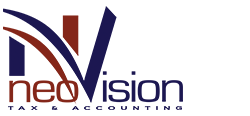As a business owner, you know you are responsible for paying quarterly taxes and making sure your taxes are paid in full once a year. Paying those taxes can be simple, especially if you have an accountant doing all of the heavy lifting for you. What is not simple is the amount you must pay in taxes. After all, your taxes are based on your business’s revenue. While increased revenue is always good, the higher tax bill that comes with it is not always welcomed.
How to Plan for Taxes When Your Revenue Increases
There are many ways to plan for taxes when you keep increasing your business’s revenue. Some are easy and others will take a little thought.
Always Set Aside Money for Taxes
Your accountant can tell you how much money you should be setting aside each month for taxes. This amount should automatically increase as you see an increase in revenue in your business. Failure to increase the amount you are setting aside for taxes will leave you wondering how you are coming up with the money at tax time. Especially if you spent that extra revenue on something else for your business.
We would love to tell you there is a magic number or even percentage of revenue you should be setting aside for your business’s taxes. However, it is always dependent on the business and how many deductions are taken. If we had to give you an estimate though, we would recommend saving between 30% and 40% of your revenue for tax purposes.
Consider Your Expenses
This is not the time to go crazy and add in even more expenses for your business. But it is the time to make sure you are including every expense your business has when tax time comes. Don’t forget to expense those items you grab money from petty cash for.
We also recommend paying all of your bills that are due by the end of the year. Even if those bills aren’t due until the beginning of January, the expense deductions can be helpful with your business’s increased revenue.
Reward Your Employees
If you haven’t rewarded your employees too much recently, maybe now is the time to celebrate them. Consider having a catered lunch or end of the year party. You can even hand out employee bonuses. The deduction may help lower your business’s tax bracket.
Stock Up on Supplies
If you noticed that your business increased its revenue quite a bit this year, it may be time to stock up on supplies before the end of the year. You can then deduct those items, so you pay less taxes. Again, this is not the time to go crazy and stock up to the point where you will still have items around in ten years.
However, if you know you need to order copy paper for the office the second week of every month, maybe order double in December and skip your order in January. There are dozens of supplies you can reasonably stock up on. We do recommend checking with your accountant though to make sure what you are ordering counts for reducing your revenue at tax time.
Purchase Necessary Equipment
Another option for lowering your taxes when you have increased revenue is ordering necessary equipment. If you have a printer that has been acting up for a few months, order a new one before the end of the year.
Create 401K Plans for Employees
If you haven’t set up 401K plans for your employees yet, now is the time to do it. With the increased revenue your business is seeing this year, you can save on taxes with each 401K you set up.
Change Your Tax Status
If your business has grown from a very small business to a thriving business, it may be time to change your tax status. It may be more beneficial for you to operate as an LLC, S-corp, or C-corp instead of a sole proprietor or partnership. Especially since the amount you pay in taxes is dependent on how your business operates.
Again, your accountant is the best person to talk to about your business’s tax status.
If you are not currently working with an accountant, contact our office today. We understand that taxes can be complicated when you don’t have time to focus on them while growing your business. We can help you determine how your business should be planning for taxes with its increased revenue and create a solid plan for the future.

